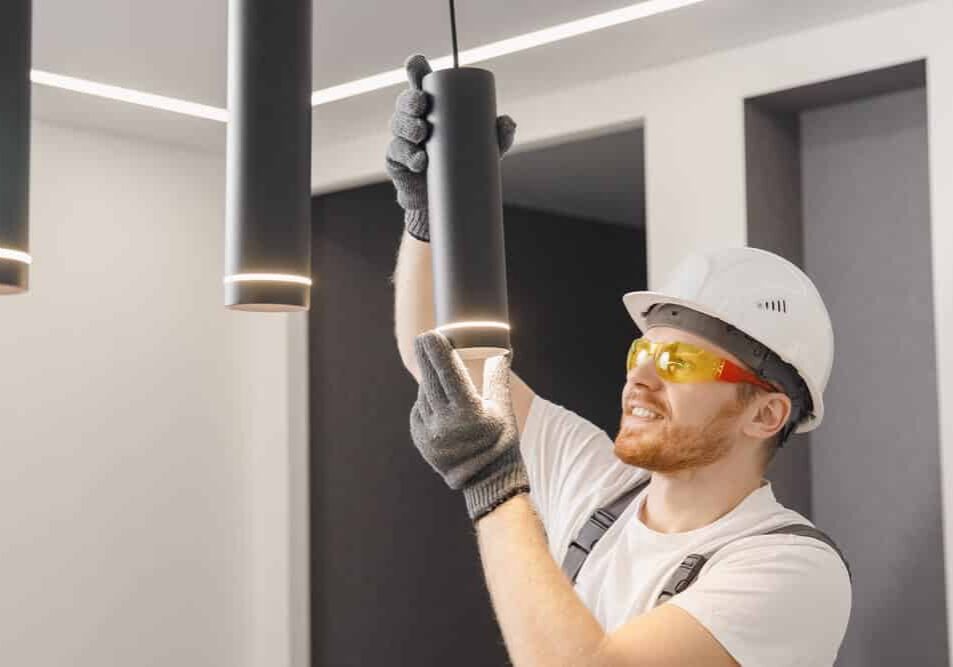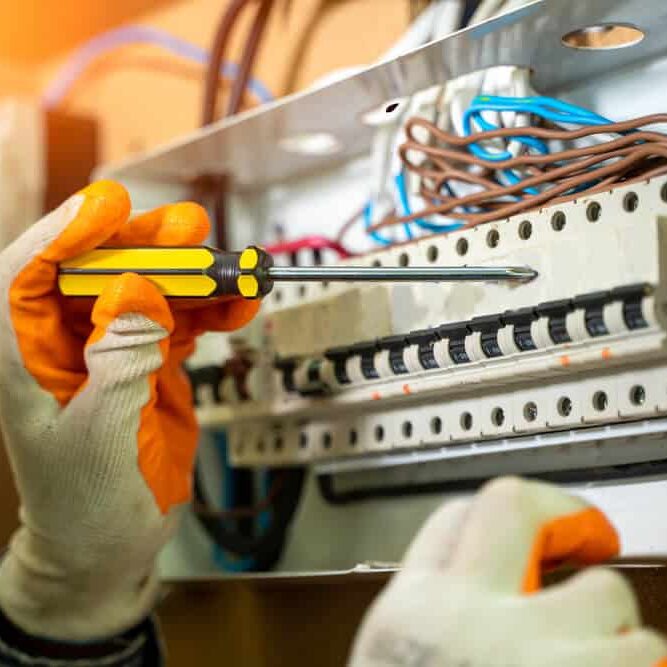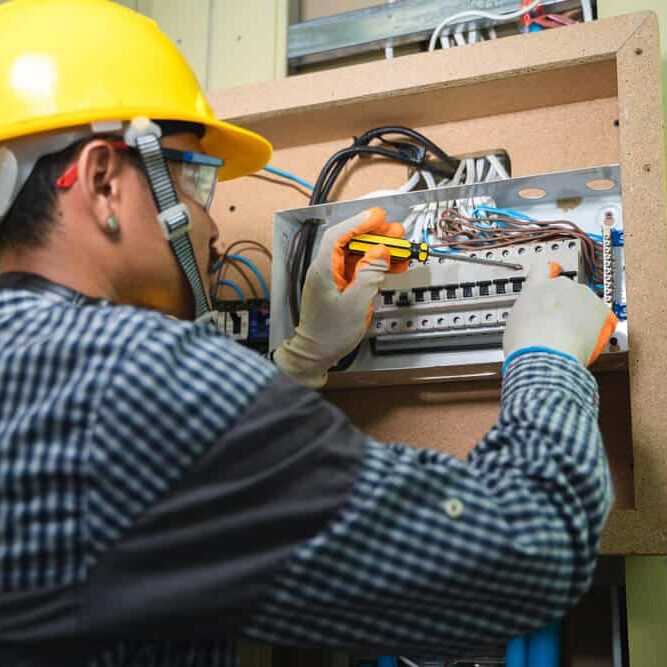An electrician comes in many different disciplines. Industrial, commercial, automotive, and low-voltage communications electricians are just a few. One such discipline in the electrical field is the residential electrician – which everyday citizens are sure to hire at some point in their lives.
Residential electricians are also known as home electricians. They are the tradespeople who install and repair many electrical systems found in your home. This article will highlight what a residential electrician does and the path one would take to enter this career.

What are the Duties of a Residential Electrician?
Residential electricians are licensed professionals skilled in performing various electrical work around your home. They will work as a contractor or as part of a contractor team. They might also lead a team of residential electricians if they are skilled enough and have the experience needed. These tradespeople will inspect, repair, install, and maintain the essential electrical systems that power your home.
A few of the duties a residential electrician must be able to perform daily are:
- Interpreting Blueprints and Technical DiagramsAn electrician must be able to step into a home where they did not install the electrical wiring and repair any issues safely and accurately. To do this, they must know how to read blueprints and diagrams.
- Installing New Electrical ComponentsSome homeowners want to upgrade their homes with new lighting fixtures or outdoor kitchens. This means the residential electrician they hire will need to safely integrate these new components into the home’s existing electrical system.
- Inspecting Electrical Components to Ensure Safety and Correct InstallationAn improperly installed electrical system can create fire hazards for your home. A residential electrician will need to be able to inspect pre-installed electrical systems as well as systems they have installed and determine that the wiring will not pose any threats.
- Maintaining Home Electrical SystemsResidential electricians will often find themselves simply maintaining the electrical components of a home. They need to know all home electrical components to ensure the home continues functioning correctly.
- Replacing Broken or Worn-Out PartsBroken or worn-out parts and loose wiring can seriously threaten a home. Residential electricians need to know how to replace all components of a home’s electrical system.
- Diagnosing Problems in Home Electrical SystemsElectricians cannot maintain a home’s electrical systems without the ability to diagnose issues within them. They will need to be able to inspect the faulty systems and find the reason for the issues.
- Thoroughly Understanding Local and Federal Safety RegulationsA residential electrician’s job is to ensure that a home’s electrical system runs efficiently and effectively. This includes ensuring the home is following all electrical regulations. They will need to know these regulations before they install or repair any components.

What Skills Should a Residential Electrician Have?
A residential electrician must be highly skilled in many areas. They must be able to work on intricate electrical systems confidently and comfortably. People who took things apart and put them back together as kids generally make good residential electricians.
Most duties of a residential electrician involve diagnosing issues within a home. Good problem solving is a must if they hope to accomplish this goal. This skill will not only help them determine the problem, but it will also help them find the appropriate solution.
It is vital that the residential electrician can communicate with the customer in a professional, friendly manner. This will help them leave their customers with a good experience and gain future work.
Most job descriptions arrive via email or paper. Good reading comprehension is necessary if a residential electrician hopes to know what the job calls for. It is also crucial for them to be able to summarize their work after a job. This will help them, or a different electrician, when working on the system another time.
How Do You Become a Residential Electrician?
To become a residential electrician, one must first obtain a high school diploma or a GED certificate. This will be paired with a certain number of on-the-job (OJT) training hours they can get from either applying to be an apprentice or enrolling in a trade school.
After they have accumulated the necessary hours of OJT, they will complete an electrical journeyman exam. If they pass this exam, they can move to a journeyman role and thus become a licensed residential electrician. This means they can begin working as a full-time residential electrician without the supervision of another electrician.
A journeyman has the option to become a master electrician. They will need to work under a master electrician for approximately seven years to be able to sit for the master electrician exam. Once passing this exam, they will inherit the title of a master electrician.

What are the Working Environments of a Residential Electrician?
Residential electricians will work in some harsh environments. Though they usually work indoors, they sometimes find themselves outside working on air conditioners or solar panels. This will subject them to potentially brutal heat in the summer or frigid cold in the winter.
Indoors, they might have to work in cramped crawl spaces or oven-like attics. A residential electrician must also be sure to wear the protective gear needed to prevent injuries to themselves. As electrical emergencies are not scheduled, these tradespeople must be prepared to take jobs on weekends and holidays

